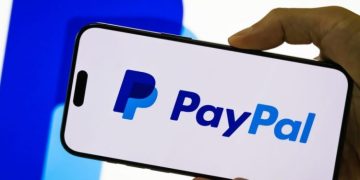Vendease, the Nigerian-based food supply startup, quietly shut down its operations in Ghana in October 2024, barely two years after its much-celebrated expansion into the West African country.
The company had launched in Ghana in 2023, shortly after securing $30 million in Series A funding. The goal was to replicate the marketplace success it had built in Nigeria, where Vendease helped food businesses source and receive bulk supplies through its digital platform.
Demand Outpaced Capacity
In Ghana, the reception was enthusiastic. Demand for Vendease’s food supply services quickly climbed, often crossing $1 million in weekly requests. However, sources familiar with the matter said the startup was only able to fulfill around 25% of those orders. The issue wasn’t demand, it was funding.
Vendease’s efforts to raise additional capital from Ghanaian financial institutions reportedly fell short. Despite the strong market appetite, the startup lacked the cash flow needed to scale operations in Ghana at the speed required.
Speaking with Techpoint Africa, co-founder and CEO Tunde Kara confirmed the company’s decision to pull out.
“We moved into Ghana because there was a lot of potential, especially when we raised our Series A. We recouped the money we invested in Ghana in the first six months of launch. We faced a lot of roadblocks and bottlenecks, but it wasn’t because our products were not in demand.” he said.
Software Suite Failed to Catch On
While the marketplace gained momentum, Vendease was also building out a software suite that included payment tools and point-of-sale solutions. These tools were meant to drive additional revenue and strengthen customer stickiness. But unlike the marketplace, these complementary services struggled to gain traction in Ghana.
In a challenging economic environment, Vendease also had to grapple with thin margins, a problem many African eCommerce ventures are familiar with. At first, the company fulfilled every order regardless of its profitability. That strategy changed as losses mounted.
Buy-Now-Pay-Later Model Hit by Defaults
A major part of Vendease’s value proposition was its embedded finance feature, a buy-now-pay-later model that provided credit to food businesses. The company issued over $72 million in loans through this system. However, it faced serious repayment issues. Customer defaults were common, and in some cases, legal intervention was required to recover debts.
Things began to stabilize with the appointment of Mohamed Chaudry as Chief Financial Officer in early 2024. Under his leadership, Vendease overhauled its payment terms, opting to process only fully paid orders or those with a one-week payment commitment. The revised approach significantly improved repayment rates, reportedly lifting them above 95%.
A Strategic Retreat
Although Vendease exited Ghana, the move wasn’t seen as a failure by the company.
“We recouped our investments in just six months,” Kara said.
But without local funding to match the pace of demand, the startup chose to focus its resources elsewhere.
Vendease’s story in Ghana underscores the critical challenges African startups face, even when they have a solid product-market fit. Without the financial infrastructure and capital support to match local demand, scaling can quickly become unsustainable.













